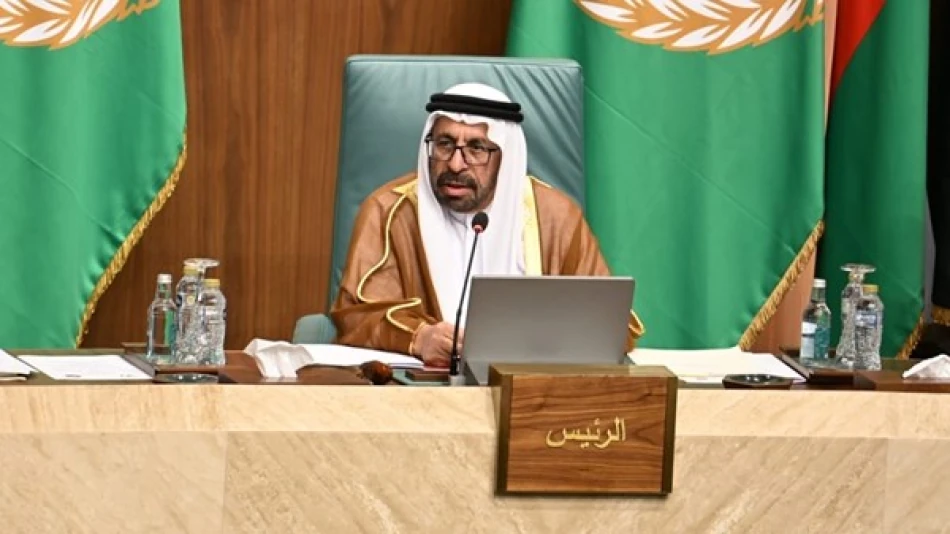
UAE Calls for Global Support to End Israeli Aggression in Gaza, Boost Peace Process
UAE Pushes Arab Unity Amid Regional Crises as France Signals Palestine Recognition
The United Arab Emirates has called for intensified international pressure to halt Israeli operations in Gaza and advance Palestinian statehood, as France prepares to recognize Palestine at the UN General Assembly next month. Speaking at the Arab League ministerial council, which the UAE currently chairs, officials emphasized the critical moment facing the region and the need for coordinated Arab economic and diplomatic responses.
Palestinian Statehood Gains Momentum
UAE Minister of State Khalifa Shaheen Al Marar highlighted the significance of French President Emmanuel Macron's commitment to recognize Palestinian statehood before the UN General Assembly. This development follows the UAE's participation in the two-state solution conference held in New York, jointly chaired by Saudi Arabia and France.
The timing appears strategic. France's recognition would mark a significant shift among major European powers, potentially creating momentum for broader international recognition. Unlike symbolic parliamentary votes seen in other European countries, a formal French recognition carries considerable diplomatic weight given France's permanent UN Security Council seat and historical Middle East influence.
Building International Consensus
Al Marar emphasized that the conference declaration serves as a "roadmap toward embodying an independent Palestinian state." The UAE's approach reflects a broader Gulf strategy of leveraging international partnerships rather than relying solely on regional initiatives—a lesson learned from previous failed peace processes.
The call for renewed Palestinian-Israeli negotiations under Palestinian Liberation Organization leadership suggests the UAE sees current conditions as potentially more favorable than in recent years, particularly with growing international pressure on Israel.
Regional Security Challenges Demand Coordinated Response
The UAE's regional agenda extends beyond Palestine, addressing multiple crisis points that threaten Arab stability and economic integration.
Iran Territorial Dispute Remains Unresolved
Al Marar reiterated the UAE's position on the three islands occupied by Iran—Greater Tunb, Lesser Tunb, and Abu Musa—calling for either direct bilateral negotiations or International Court of Justice arbitration. This long-standing dispute has gained renewed significance as regional tensions escalate, potentially affecting crucial shipping lanes and energy infrastructure.
Sudan and Syria: Stabilization Efforts
The UAE continues supporting Sudan's democratic transition amid ongoing civil conflict, while maintaining its position on Syrian unity and sovereignty. These stances reflect the UAE's broader strategy of promoting stability through economic engagement rather than military intervention—a approach that has yielded mixed but generally positive results in recent years.
Economic Integration as Conflict Prevention
Al Marar's emphasis on "maximizing joint Arab economic efforts" signals recognition that economic interdependence can serve as a buffer against regional conflicts. The UAE has successfully used this model in normalizing relations with Israel and rebuilding ties with Qatar after the 2021 reconciliation.
Green Economy Leadership
The minister highlighted partnerships in climate, energy, artificial intelligence, and education—sectors where the UAE has invested heavily since hosting COP28. This positions the country as a bridge between traditional Arab economies and emerging global priorities, potentially creating new frameworks for regional cooperation.
The UAE's advanced approach to green economy and clean energy development offers a practical model for Arab states seeking to diversify beyond oil dependence while maintaining regional relevance.
Diplomatic Pragmatism in Crisis Management
The UAE's current Arab League chairmanship comes at what Al Marar termed "an extremely critical moment in the region." This timing allows the UAE to promote its diplomatic methodology—emphasizing humanitarian action, counter-terrorism cooperation, and tolerance promotion over military solutions.
The welcome extended to Lebanon's decision to restrict weapons to state control demonstrates this pragmatic approach. Rather than demanding immediate disarmament of non-state actors, the UAE supports gradual institutional strengthening—a more realistic path given Lebanon's complex political dynamics.
The UAE's strategy appears designed to position Arab states as constructive international partners rather than merely regional actors, potentially increasing their influence in global decision-making processes affecting Middle Eastern stability.
Most Viewed News

 Layla Al Mansoori
Layla Al Mansoori






